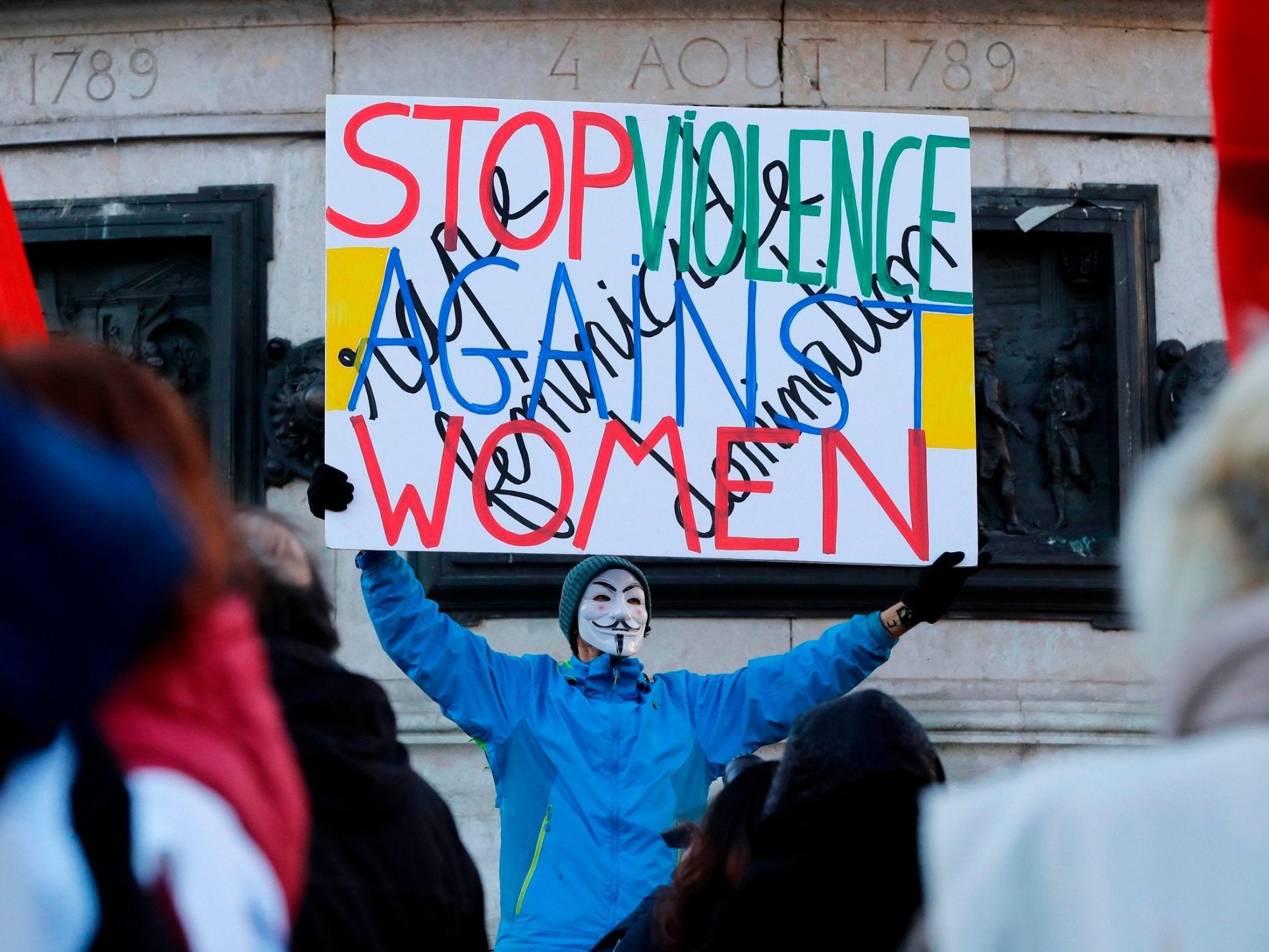Only a quarter of EU countries have consent-based definitions of rape, Amnesty reveals
‘Sex without consent is rape, full stop. Until governments bring their legislations in line with this simple fact, the perpetrators of rape will continue to get away with their crimes’

The majority of women living in Europe are being put at risk by laws that fail to recognise sex without consent as rape, a study by Amnesty International has revealed.
Three-quarters of EU member states only legally recognise rape when physical violence, threats or coercion is involved, according to analysis published ahead of International Day for the Elimination of Violence against Women on Saturday.
The charity said the findings highlight how “flawed and outdated” legislation is perpetuating a dangerous culture of victim blaming across the continent, allowing rape cases to fall through the gaps in legal systems, despite the momentum of the #MeToo movement.
“Women’s fear of not being believed is confirmed time and time again, as we see courageous survivors who do seek justice frequently failed by outdated and harmful definitions of rape in law and treated appallingly by justice officials,” said the study’s author, Anna Błus.
Only seven out of 28 EU member states, including the UK, Ireland, Germany and Cyprus, have laws under which rape is defined by consent.
Across Europe, attitudes towards consent vary. In 2016, the EU Commission revealed that more than a quarter of citizens believed that sexual intercourse without consent was justifiable, if the victim was drunk, wore revealing clothes or flirted beforehand.
However, in some central and eastern European countries this number was higher, with half of Romanian respondents believing non-consensual sex could sometimes be justified.
Ms Błus argued that the law plays a large role in shaping and enabling such views, with “the power to enable justice and influence attitudes”.
“Sex without consent is rape, full stop. Until governments bring their legislations in line with this simple fact, the perpetrators of rape will continue to get away with their crimes,” she said.
This year has seen several EU countries move towards consent-based legislation.

Following protests over the La manada (wolf pack) case, where rape charges against five men accused of raping a girl during the Pamplona bull-run were dropped over issues of consent, Spain followed Sweden’s example and announced a new “yes means yes” based law.
The matter has also been raised in countries such as Italy, Portugal and Denmark.
However, legislation is only the first step, said Ms Blus.
Katie Russell, a spokeswoman for Rape Crisis England and Wales, said: “The legislation on its own can’t affect real change because we’re talking about deeply engrained social attitudes and that kind of cultural shift can’t happen overnight.
“It must be accompanied with real investment in specialist training, education around consent for children and adults at the earliest possible age.”
Although Ms Błus believes that Britain’s rape legislation is largely effective, she told The Independent: “In the UK, because the law has been around for so long, raising awareness and having those conversations is really important, on a societal level but also among legal professionals because the awareness is not always there.”
Ms Russell said that investment and funding is desperately needed in specialist support services and within the criminal justice system.
While figures from the Crown Prosecution Service show the police recorded a record 54,000 rape offences in the year to September 2018, the number of people charged fell by almost a quarter.
The CPS only takes cases forward to prosecutors where it finds “sufficient evidence to provide a realistic prospect of conviction”.
Police have said they don’t have the resources to deal with increased demand of victims coming forward.
Ms Russell highlighted the importance of education and raising awareness in Britain: “Consent is not a grey area. It’s not just about ‘yes means yes’ and ‘no means no’.
“It’s about understanding with a level of human empathy, decency and logic that consent is straightforward, but we need to collectively take responsibility for raising real awareness and understanding.”
Bookmark popover
Removed from bookmarks